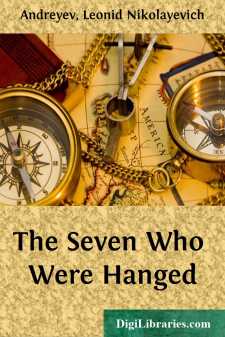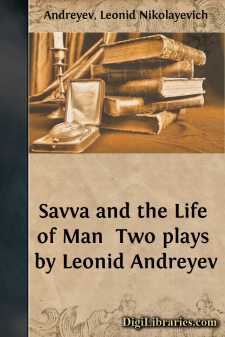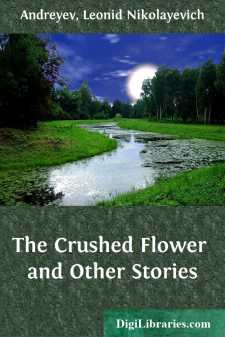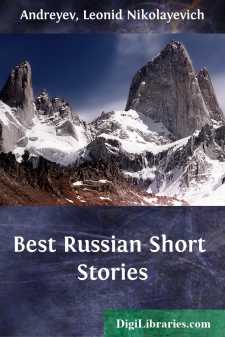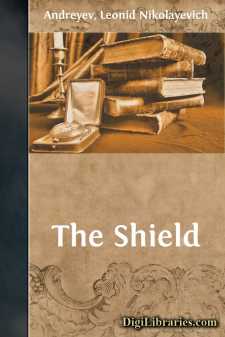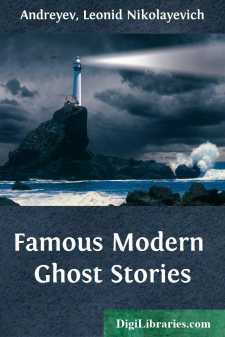Categories
- Antiques & Collectibles 13
- Architecture 36
- Art 48
- Bibles 22
- Biography & Autobiography 813
- Body, Mind & Spirit 142
- Business & Economics 28
- Children's Books 15
- Children's Fiction 12
- Computers 4
- Cooking 94
- Crafts & Hobbies 4
- Drama 346
- Education 46
- Family & Relationships 57
- Fiction 11828
- Games 19
- Gardening 17
- Health & Fitness 34
- History 1377
- House & Home 1
- Humor 147
- Juvenile Fiction 1873
- Juvenile Nonfiction 202
- Language Arts & Disciplines 88
- Law 16
- Literary Collections 686
- Literary Criticism 179
- Mathematics 13
- Medical 41
- Music 40
- Nature 179
- Non-Classifiable 1768
- Performing Arts 7
- Periodicals 1453
- Philosophy 64
- Photography 2
- Poetry 896
- Political Science 203
- Psychology 42
- Reference 154
- Religion 513
- Science 126
- Self-Help 84
- Social Science 81
- Sports & Recreation 34
- Study Aids 3
- Technology & Engineering 59
- Transportation 23
- Travel 463
- True Crime 29
The Seven Who Were Hanged
Description:
Excerpt
I am very glad that "The Story of the Seven Who Were Hanged" will be read in English. The misfortune of us all is that we know so little, even nothing, about one another—neither about the soul, nor the life, the sufferings, the habits, the inclinations, the aspirations of one another. Literature, which I have the honor to serve, is dear to me just because the noblest task it sets before itself is that of wiping out boundaries and distances.
As in a hard shell, every human being is enclosed in a cover of body, dress, and life. Who is man? We may only conjecture. What constitutes his joy or his sorrow? We may guess only by his acts, which are oft-times enigmatic; by his laughter and by his tears, which are often entirely incomprehensible to us. And if we, Russians, who live so closely together in constant misery, understand one another so poorly that we mercilessly put to death those who should be pitied or even rewarded, and reward those who should be punished by contempt and anger—how much more difficult is it for you Americans, to understand distant Russia? But then, it is just as difficult for us Russians to understand distant America, of which we dream in our youth and over which we ponder so deeply in our years of maturity.
The Jewish massacres and famine; a Parliament and executions; pillage and the greatest heroism; "The Black Hundred," and Leo Tolstoy—what a mixture of figures and conceptions, what a fruitful source for all kinds of misunderstandings! The truth of life stands aghast in silence, and its brazen falsehood is loudly shouting, uttering pressing, painful questions: "With whom shall I sympathize? Whom shall I trust? Whom shall I love?"
In the story of "The Seven Who Were Hanged" I attempted to give a sincere and unprejudiced answer to some of these questions.
That I have treated ruling and slaughtering Russia with restraint and mildness may best be gathered from the fact that the Russian censor has permitted my book to circulate. This is sufficient evidence when we recall how many books, brochures and newspapers have found eternal rest in the peaceful shade of the police stations, where they have risen to the patient sky in the smoke and flame of bonfires.
But I did not attempt to condemn the Government, the fame of whose wisdom and virtues has already spread far beyond the boundaries of our unfortunate fatherland. Modest and bashful far beyond all measure of her virtues, Russia would sincerely wish to forego this honor, but unfortunately the free press of America and Europe has not spared her modesty, and has given a sufficiently clear picture of her glorious activities. Perhaps I am wrong in this: it is possible that many honest people in America believe in the purity of the Russian Government's intentions—but this question is of such importance that it requires a special treatment, for which it is necessary to have both time and calm of soul. But there is no calm soul in Russia.
My task was to point out the horror and the iniquity of capital punishment under any circumstances. The horror of capital punishment is great when it falls to the lot of courageous and honest people whose only guilt is their excess of love and the sense of righteousness—in such instances, conscience revolts. But the rope is still more horrible when it forms the noose around the necks of weak and ignorant people. And however strange it may appear, I look with a lesser grief and suffering upon the execution of the revolutionists, such as Werner and Musya, than upon the strangling of ignorant murderers, miserable in mind and heart, like Yanson and Tsiganok....


